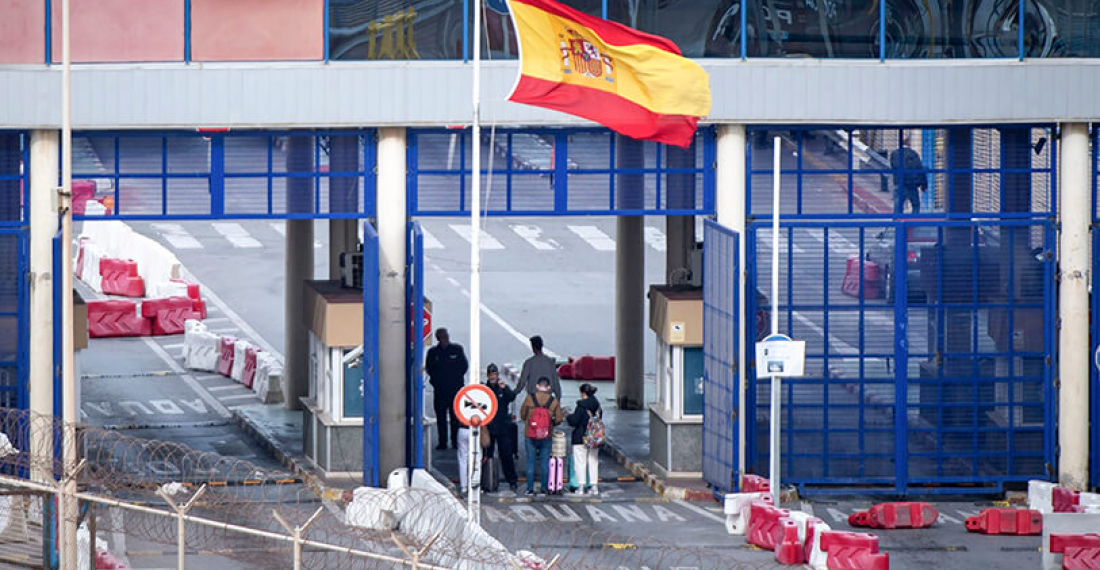The Spanish Interior Minister announced on Thursday, 12 May, that Madrid and Rabat have decided to reopen the borders between Morocco and the Spanish enclaves of Ceuta and Melilla in the next few days, after two years of closure. The enclaves, on the African continent, are surrounded by the sea, and by Moroccan territory.
The reopening of the only two land borders of the European Union on the African continent will be done gradually and will initially concern the nationals of countries belonging to the Schengen area, according to the Spanish Minister of the Interior Fernando Grande-Marlaska. Workers from border regions will then be able to cross the border freely from 31 May 2022.
These two border crossings had been closed as a precautionary measure in the spring of 2020 during the first wave of Covid-19, and their closures were later extended due to a diplomatic crisis between Madrid and Rabat.
This new thaw in relations between the two neighbouring countries comes after Spanish Prime Minister Pedro Sanchez announced on 18 March his support for Rabat's plan on the thorny issue of Western Sahara, putting an end to nearly a year of diplomatic crisis with Rabat.
Western Sahara - a vast desert area with a coastline rich in marine resources and a subsoil rich in phosphates - is a former Spanish colony classified as "non-autonomous" by the United Nations, with 80% of its territory currently under Moroccan control.
The Polisario Front - an Algiers-backed movement of fighters seeking independence for the territory - considers that the autonomy plan supported by Rabat as an attempt to legitimise the annexation of Western Sahara while ignoring the inalienable rights of the Sahrawi people to self-determination.
The dispute between Rabat and Madrid was triggered last year when Spain received the leader of the Sahrawi independence movement Polisario Front - Brahim Ghali - to be hospitalised in Spain after testing positive to Covid.
Rabat was quick to retaliate in May 2021 by allowing around 10 000 migrants from sub-Saharan Africa to pass through its checkpoint and move towards the Spanish enclave city of Ceuta on the North African coast, triggering a crisis.
Since then, however, relations have become increasingly cordial, and the two governments' renewed cooperation on migration control has yielded results. Spanish Foreign Minister Hosé Manuel Albares welcomed on 11 May a 70% drop in migrant inflows to the Spanish archipelago of the Canary Islands, located close to the Moroccan mainland, over the past year.






